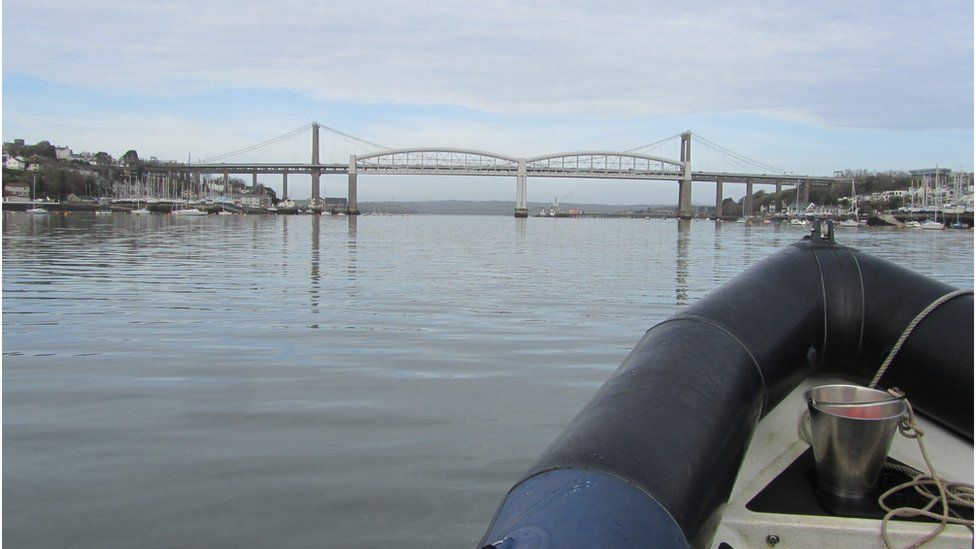Sensors installed on Tamar Bridge to monitor water quality
- Published

Sensors have been installed on the Tamar Bridge as part of a research project to monitor impacts of flooding on water quality in the River Tamar and Plymouth Sound.
The bridge connects Devon and Cornwall and three sensors have been installed on the north side of the structure.
The project is a collaboration between Plymouth Marine Laboratory and CSIRO, Australia's national science agency.
The sensors are powered by a small solar panel, also fixed to the bridge.
A spokesperson said: "Flooding events can carry agricultural fertilisers, sewage effluent and, in some locations, heavy metals from the rivers to the coast.
"These can pose a significant health risk to humans and the environment through the deposition of high nutrients, suspended material, viruses and bacteria."
They said the project would provide "information on the concentration of nutrients, suspended material, viruses and bacteria in the water".
"These measurements are used in synergy with data from marine buoys situated along the coast and satellite images, to provide a synoptic picture of the water quality in the River Tamar and how it affects coastal waters in Plymouth Sound."
The project is being funded through the government's UK Research and Innovation fund and CSIRO's AquaWatch Mission.
Follow BBC Cornwall on X (formerly Twitter), Facebook and Instagram. Follow BBC Devon on X (formerly Twitter), Facebook and Instagram. Send your story ideas to spotlight@bbc.co.uk.
- Published2 January